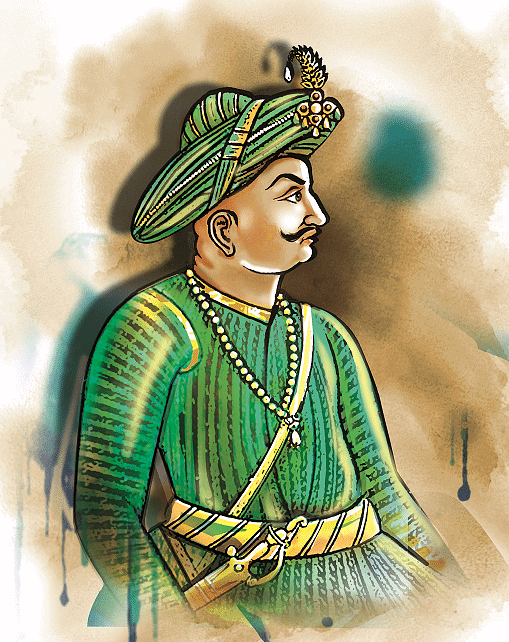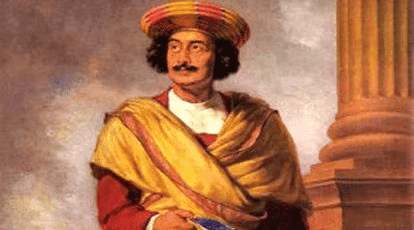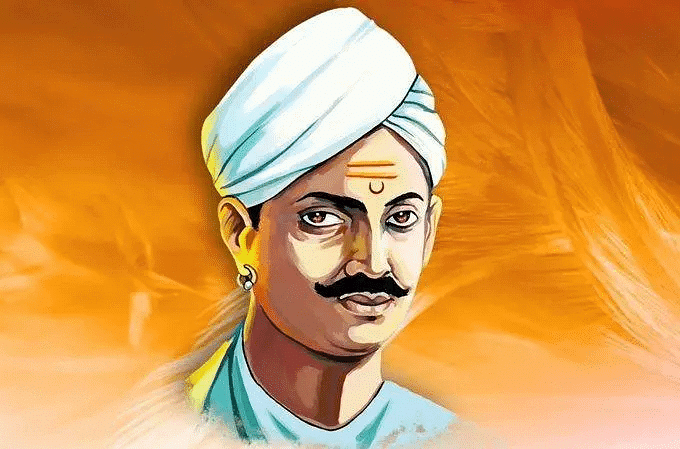Glimpses of the Past Summary Class 8 English Honeydew Chapter 3
| Table of contents |

|
| Key Points |

|
| Detailed Summary |

|
| Theme |

|
| Difficult Words |

|
Key Points
- In 1757, the British had a strong position in India due to superior arms and financial resources.
- Indian states lacked unity and often sought British help, which led to the East India Company exploiting them.
- The British used the policy of ‘Divide and Rule’ to subdue Indian princes.
- Tipu Sultan of Mysore fought against the British but died in the Fourth Anglo-Mysore War in 1799.
- Between 1765 and 1836, harmful social practices like untouchability and Sati were common.
- The British looked down on Indians, which made them lose their self-respect.
- The British imposed heavy taxes on farmers and cut the thumbs of expert artisans, while imports from England were tax-free.
- From 1772 to 1833, Raja Ram Mohan Roy worked to reform society and established the Brahmo Samaj.
- Raja Ram Mohan Roy fought against practices like Sati pratha and child marriages and helped abolish Sati pratha.
- In 1818, the Third Regulation Act allowed Indians to be jailed without trial.
- By 1829, British exports were worth seven crore rupees while Indian industries were declining.
- In 1835, Lord Macaulay recommended English as the medium of education, creating intellectuals who opposed British rule.
- By 1856, India became a fully controlled British Colony, leading to revolts.
- In 1855, the Santhals rebelled and killed the British and their servants.
- The Sepoy of 1857 began with the execution of Mangal Pandey and saw widespread participation, including rulers like Hazrat Mahal and Tatya Tope.
Detailed Summary
The chapter starts with the events that were taking place in the year 1757. At this time, the British were in a strong position in India. They had superior arms and ammunition and also financial resources. On the other hand, the Indian states and the princes were short-sighted and were busy fighting with each other. They lacked unity. They also often sought British help and East India Company took full advantage of this. The British used the policy of 'Divide and Rule' and also weakened the Princes. Some people favoured the British while some did not. However, Tipu Sultan of Mysore fought with the British. But unfortunately, he died in the year 1799 fighting the Fourth Anglo-Mysore War.
 Tipu Sultan
Tipu Sultan
The chapter further describes the social fabric from 1765 to 1836. Evil social practices such as untouchability, child marriages, Sati pratha, etc. were preached by the religious leaders. The British disdained the Indians and, in the process, Indians lost their self-respect also. The British imposed heavy taxes on the farmers. They also cut the thumbs of the expert artisans. However, the imports from England were tax-free. Thus, the main motive of the British was the maximization of profit and wealth at any cost.
 Raja Ram Mohan Roy
Raja Ram Mohan Roy
From 1772 to 1833, Raja Ram Mohan Roy started his efforts to reform Indian society. He established Brahmo Samaj for this purpose. He propagated the idea that the main teachings and principals of all religions are the same. Also, he started newspapers in India. He was against evil practices such as Sati pratha, polygamy, child marriages, and the caste system. He played a major role in the abolishment of Sati pratha.
In 1818, the British passed The Third Regulation Act. According to it, an Indian could be sent to jail even without any trial in the court. This was a phase of oppression of the Indians. By 1829, the value of British exports was worth seven crore rupees. While the Indian industries were ruining, the British were prospering.
It seems this was not enough so the British now aimed at preparing clerks for running the administration. Thus, in 1835, Lord Macaulay recommended that the medium of education should be English. This education policy also generated some intellectuals who understood the evils of British Raj and educated the fellow Indians.
By 1856, India had become a fully controlled British Colony. The suppression was at its peak and thus it led to revolts. In 1855, the Santhals rebelled and killed the British as well as their servants. In 1857, the first Sepoy started with the execution of Mangal Pandey. The sepoys marched towards Delhi shouting slogans in favour of Bahadur Shah Zafar. The landlords also joined this movement. People circulated chapattis with the message that their native ruler needs their help. Similarly, a lotus flower was distributed among the Indian soldiers.
 Mangal Pandey
Mangal Pandey
Many rulers like Hazrat Mahal of Lucknow, Maulvi Ahmadullah of Faizabad, Tatya Tope, and Peshwa Nana Saheb of the Maratha empire and Kunwar Singh of Bihar also joined the revolt. This was the beginning of the Indian freedom struggle.
Theme
The theme of "Glimpses of the Past" revolves around the struggles and resistance against British colonial rule in India. It highlights the importance of unity among Indians to combat oppression and achieve freedom. The chapter emphasizes how division and social evils weakened Indian society, making it easier for the British to exploit and control the country. However, it also showcases the resilience and bravery of Indian leaders and common people who fought against British policies and practices. The narrative teaches the lesson that "United we stand, divided we fall," underscoring the necessity of solidarity and organized efforts to overcome challenges and achieve success.Difficult Words
- Superior - Higher in rank, status, or quality.
- Ammunitions - A supply or quantity of bullets and shells.
- Subdue - To overpower, conquer, or bring something under control.
- Oppression - Prolonged cruel or unjust treatment or control.
- Exploiting - Making full use of and deriving benefit from a resource.
- Disdained - Considered to be unworthy of one's consideration.
- Untouchability - It refers to the social exclusion of people based on their caste or social status, particularly those in the "lowest" caste groups.
- Artisans - Workers in a skilled trade, especially one that involves making things by hand.
- Maximisation - The act of making something as large or great as possible.
- Reform - Make changes in something (typically a social, political, or economic institution or practice) in order to improve it.
- Principals - Fundamental truths or propositions that serve as the foundation for a system of belief or behavior.
- Polygamy - The practice of having more than one wife or husband at the same time.
- Abolishment - The act of officially ending or stopping something.
- Regulation - A rule or directive made and maintained by an authority.
- Prospering - Growing or flourishing successfully.
- Intellectuals - People possessing a highly developed intellect.
- Suppression - The act of forcibly putting an end to something, such as an emotion, action, or an activity.
- Solidarity - Unity or agreement of feeling or action, especially among individuals with a common interest; mutual support within a group.
|
36 videos|353 docs|56 tests
|
FAQs on Glimpses of the Past Summary Class 8 English Honeydew Chapter 3
| 1. What is the main theme of "Glimpses of the Past"? |  |
| 2. Who are the key figures mentioned in the article "Glimpses of the Past"? |  |
| 3. How does the article "Glimpses of the Past" relate to modern society? |  |
| 4. What are some difficult words found in "Glimpses of the Past" and their meanings? |  |
| 5. Why is it important to study history as discussed in "Glimpses of the Past"? |  |
















